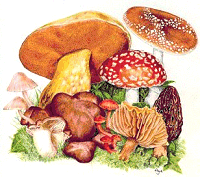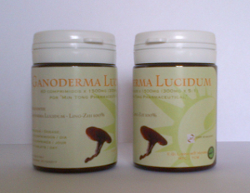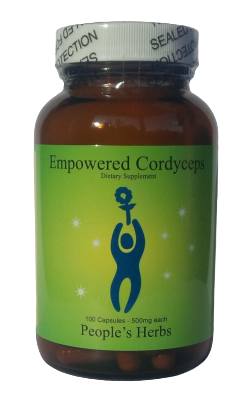Shop News
-
07/02/2025Colds & Flu - treatment and prevention
-
23/01/2025Curcumin Benefits
-
02/05/2024Ginseng - Nature's anti-inflammatory
-
02/05/2024Allergies Tradicional Chinese Medicine
-
12/03/2024Food Combining and Chinese Medicine
-
23/08/2023Phytoestrogens
-
05/06/2023Ginseng Benefits
-
02/06/2023Aumento de precios de la marca Blue Poppy
-
20/07/2022Infertility and Chinese Medicine
-
10/05/2022Allergic Rhinitis
-
24/03/2022TCM Obesity and Its Causes
-
23/03/2022Cancer Prevention and Diet
-
26/01/2022Medicinal Mushrooms
-
18/12/2021Christmas Remedies
-
15/10/2021Artemisia annua
-
09/07/2021CANDIDIASIS
-
03/03/2021Chinese Herbal Medicine formula studied to improve cancer therapy
-
12/01/2021The benefits of Xiao Yao San
-
15/09/2020Coronavirus Protocol (summary)
-
01/06/2020TCM Principles for Weight Loss
-
12/02/2020Take Good Care of Your Qi
-
01/01/2020Cordyceps Sinensis Benefits
-
01/12/2019Prevention & Treatment of Colds & Flu
-
27/04/2019ANXIETY - causes and treatments
-
26/03/2019Prostatitis and Chinese Herbs
-
01/03/2019What is an Adaptogenic Herb?
-
05/02/2019New Jade Herbal Formulas
-
09/12/2018The Shen of the Heart
-
23/08/2018Hyperthyroidism and Hypothyroidism
-
05/07/2018FOCUS ON A REMEDY: WARM THE MENSES
-
04/04/2018Treating Insomnia With Chinese Herbal Medicine
-
25/03/2018Cordyceps Sinensis research
-
01/03/2018Chinese Herbal Medicine for Panic Attacks
-
17/01/2018Clinical application of the Clear Metal remedy for advanced stage of influenza
-
02/01/2018New Pediatric Formulas by "Blue Poppy"
-
07/11/2017BI SYNDROME
-
01/09/2017Chemotherapy and Anti-Oxidants
-
05/03/2017Lumbar Disc Herniation
-
31/01/2017Treatment Principles in Exterior Invasions
-
21/10/2016Healthy Aging and Oriental Medicine: Qi is the secret
-
23/09/2016Horny Goat's Weed Benefits
-
25/08/2016Ganoderma Benefits
-
23/07/2016FOCUS ON A REMEDY: PROSPEROUS EARTH
-
25/06/2016Ginkgo Biloba Benefits
-
23/03/2016Blood Stasis
-
23/02/2016FOCUS ON A REMEDY: PROSPEROUS EARTH
-
23/01/2016CHRONIC FATIGUE SYNDROME
-
28/12/2015TONICS
-
24/10/2015A CASE HISTORY OF CHRONIC BRONCHITIS
-
23/09/2015Ganoderma Lucidum reduces obesity in mice
-
01/07/2015The Five Elements and Diet in Chinese Medicine
-
23/05/2015Daoist Sexual Practices
-
21/02/2015DEPRESSION
-
22/01/2015GLAUCOMA
-
20/12/2014ENDOMETRIOSIS
-
28/11/2014POLYCYSTIC OVARY SYNDROME
-
21/08/2014Ear infections and antibiotics
-
24/06/2014FOCUS ON A REMEDY: CHEMO-SUPPORT
-
21/03/2014Stomach-Yin Deficiency and Jade Spring
-
21/02/2014JOY, AN EMOTIONAL CAUSE OF DISEASE?
-
17/01/2014SEXUAL LIFE IN CHINESE MEDICINE
-
19/12/2013ON STAGNATION OF LUNG- AND HEART-QI
-
14/11/2013THREE TREASURES REMEDIES FOR PAIN
-
23/10/2013HEADACHE CASE HISTORY
-
22/10/2013.
-
12/07/2013Giovanni Maciocia Clinical Tip: Arouse Power
-
28/05/2013Blue Poppy - New Formulas
-
19/04/2013Case history - Chronic constipation
-
14/03/2013Three Treasures Webinar
-
31/01/2013Recurrent Bronchitis: a case history
-
31/12/2012FOCUS ON A REMEDY: SOOTHE THE SHEN
-
18/06/2012Herbs for the treatment of Anorexia
-
09/05/2012Three Treasures & Women's Treasures now available
-
09/04/2012REMEDY OF THE MONTH: CLEAR YANG
-
02/07/2011New Pediatric Formulas
-
28/04/2011Lingzhi slows progress of Alzheimer’s
-
18/10/2010European Legislation for natural products
-
19/09/2010700-year-old Chinese medicine can treat depression...
-
24/04/2010PDF Catalog
-
01/09/2009Swine Flue
Along with the bold yet delicate taste that shiitake, maitake, cordyceps and reishi mushrooms add to soups and other dishes, these gourmet delicacies are prized as herbal medicines. Traditional Asian healers have used them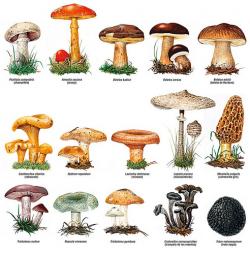 for centuries to strengthen the immune system and promote longevity. Recently, an Extract from a different mushroom altogetherâ, from the Coriolus (Coriolus versicolor) mushroom --was identified as a possible ally in the fight against cancer. While mushrooms other than these may well have specific health-promoting actions, they haven't been as thoroughly researched for medicinal purposes.
for centuries to strengthen the immune system and promote longevity. Recently, an Extract from a different mushroom altogetherâ, from the Coriolus (Coriolus versicolor) mushroom --was identified as a possible ally in the fight against cancer. While mushrooms other than these may well have specific health-promoting actions, they haven't been as thoroughly researched for medicinal purposes.
Shiitake (Lentinus edodes) mushrooms are low in calories and are a good source of potassium, phosphorous, iron, selenium, Protein, Vitamin D2 (ergosterol, a plant sterol that is converted to vitamin D when exposed to ultra-violet rays), thiamin, riboflavin, and niacin, as well as all essential Amino acids, enzymes, fiber, and nucleic acid derivatives. In ancient China, herbalists utilized shiitake for a host of ailments including colds, flu, headaches, measles, gastrointestinal distress, and liver problems, as well as for improving circulation and increasing vitality. Ancient physicians prescribed shiitake to boost chi, or life energy. Now, shiitake are a subject of intense research, and the medicinal capabilities attributed to the shiitake mushroom are so prized that it is now among the most cultivated of the world’s edible mushrooms.
Maitake (Grifola frondosa) mushrooms are also packed with nutrients and have long been used in Traditional Chinese Medicine. They are rich in minerals such as calcium, magnesium and potassium, vitamins B and D2, and niacin, as well as amino acids and fiber. Maitake mushrooms contain a protein-bound polysaccharide compound called beta-glucan, which has been identified as an active constituent responsible for its immunity-enhancing, anti-tumor properties.
Reishi (Ganoderma lucidum) mushrooms also contain beta-glucans and are one of the few known sources of another polysaccharaide group called triterpenes, which are also thought to have potential immunomodulating, anti-tumor, and Antioxidant activities. Reishi varieties also contain vitamins including D2, minerals, and unsaturated fatty acids. Reishi mushrooms have also been touted for immunity-enhancing and regulating activities.
The Coriolus versicolor mushroom contains one of the most-studied mushroom extracts. Since the early 1970s, more than 400 studies have evaluated the extract, PSK (polysaccharide krestin), for its anti-cancer properties. Another polysaccharide found in the Coriolus mushroom, called PSP (polysaccharide peptide), also appears to have cancer-fighting properties. And, like Maitake, PSK extract is high in immune-boosting beta-glucan.
Another medicinal mushroom, the cordyceps species, also contains immune-boosting beta-glucans and triterpenes. The cordyceps grows out of caterpillar larvae in the Himalayas, and has been used in traditional Chinese medicine to treat cough and wheezing and to reduce fatigue and calm nervousness. Although the cordyceps species has been touted for its potential to enhance physical performance, scientific evidence does not support these claims.
All of these healing mushrooms contain polysaccharides, powerful compounds that help in building immunity. Polysaccharides and other compounds in mushrooms may also lower cholesterol, reduce the risk of dangerous blood clots, prevent heart disease, treat diabetes, relieve bronchitis and sinusitis, and possibly fight cancer cells and increase the potency of cancer treatments.
Specifically, mushrooms may help to:
Improve risk factors for heart disease, such as lowering blood pressure and cholesterol. Shiitake and maitake mushrooms contain polysaccharides called lentinan, which may have potential cardio-protective effects, such as cholesterol lowering properties; and other polysaccharides found in reishi and a variety of other mushrooms also may have additional cardio-protective benefits. Several studies in animals have shown the potential of these mushrooms for improving blood pressure and cholesterol levels. For example, in a 1987 study done with rats with high blood pressure, those fed a diet containing shiitake and maitake mushroom powder for nine weeks experienced a decrease in blood pressure and cholesterol levels while no differences in cholesterol levels were seen in control groups. However, the cholesterol decrease was seen in HLD-cholesterol (“good†cholesterol) and triglycerides, and the mushrooms did not seem to affect LDL-cholesterol (“bad†cholesterol) levels in the rats. (1) In a similar experiment in 1989, hypertensive rats fed maitake mushrooms for eight weeks experienced a significant reduction in blood pressure but no changes in cholesterol levels compared to control groups; and those fed shiitake mushrooms for eight weeks showed significantly lower cholesterol levels but no change in blood pressure compared to the control group. (2) A 1996 study compared the levels of cholesterol, phospholipids, and triglycerides in cholesterol-fed rats with or without fortification with 20% maitake mushroom powder. In the maitake-fed rats lipid levels were consistently lower, and the weights of extirpated liver and Fat pads were significantly less. Researchers concluded the maitake mushroom powder appears to alter lipid metabolism by inhibiting the accumulation of liver lipids and the elevation of serum lipids, but further research is needed to determine whether the effect is the same in humans. (3) Another animal study in 2001 found rats fed maitake, shiitake or enokitake mushroom fiber for four weeks showed lowered serum total cholesterol, higher fecal cholesterol excretion, and improved LDL (“bad†cholesterol) levels compared to the control group. (4) Other mushrooms, such as the oyster mushroom (Pleurotus ostreatus), have also been the subject of studies that indicate cholesterol lowering effects in animals. However, studies are needed to determine the efficacy of medicinal mushrooms for lowering cholesterol and blood pressure in humans.
Treat diabetes. The fruiting bodies of maitake mushrooms contain polysaccharides that appear to have a hypoglycemic effect, possibly by activating insulin receptors, which may be beneficial in regulating type 2 diabetes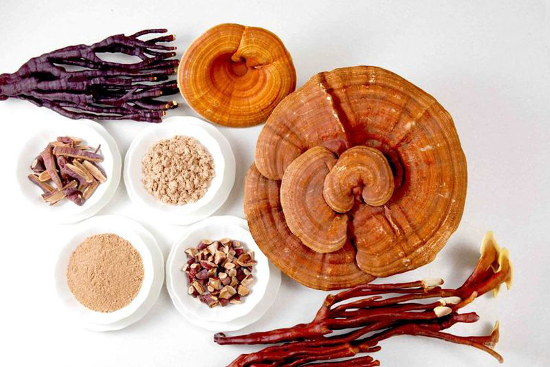 . Preliminary clinical evidence indicates maitake mushroom extracts may help to reduce symptoms of type 2 diabetes, including reducing blood sugar levels. In a 2001 study, diabetic rats and control groups were fed diets containing either 20% maitake or control diets for 100 days. After 10 weeks, fasting glucose levels were significantly lower and insulin levels were significantly higher in the group fed maitake compared to the control diet alone. (5) And in a 2002 study of insulin-resistant mice, a water-soluble extract of maitake mushroom (FXM) was shown to be as effective as the conventional diabetic medication glipizide. (6) A 2007 study in humans had similar findings when testing oyster mushrooms. In the six-month study, 89 diabetic patients included oyster mushrooms in their diets for 21-day periods (7 days with mushrooms, 7 days without mushrooms, 7 days with mushrooms—the quantity of mushrooms was not described). Blood pressure levels, plasma glucose levels, and other factors were measured at the start of the study and after each 7-day period. Eating oyster mushrooms seemed to reduce systolic and diastolic blood pressure, as well as significantly lowering blood glucose levels. These levels increased when mushroom was withdrawn and decreased again after restarting eating mushrooms. (7) Also in 2007 in Taiwan, a randomized, double-blind, Placebo-controlled study evaluating the efficacy of an extract of Agaricus mushroom (Agaricus blazei Murill) found that using the extract in conjunction with the conventional medications metformin and glipizide was more efficacious than conventional medications alone. In the study, 72 diabetic patients aged 20 to 75 who had diabetes for more than one year and had been treated with the conventional medications for more than six months were enrolled and randomized to receive either mushroom extract or placebo daily for 12 weeks. At the end of the study, the group receiving mushroom extract showed significant improvement in Insulin resistance compared to the control group, and there was a 20% increase in plasma concentration of the glucose-regulating Hormone adiponectin in the treatment group compared to a 12% decrease in the control group. (8)
. Preliminary clinical evidence indicates maitake mushroom extracts may help to reduce symptoms of type 2 diabetes, including reducing blood sugar levels. In a 2001 study, diabetic rats and control groups were fed diets containing either 20% maitake or control diets for 100 days. After 10 weeks, fasting glucose levels were significantly lower and insulin levels were significantly higher in the group fed maitake compared to the control diet alone. (5) And in a 2002 study of insulin-resistant mice, a water-soluble extract of maitake mushroom (FXM) was shown to be as effective as the conventional diabetic medication glipizide. (6) A 2007 study in humans had similar findings when testing oyster mushrooms. In the six-month study, 89 diabetic patients included oyster mushrooms in their diets for 21-day periods (7 days with mushrooms, 7 days without mushrooms, 7 days with mushrooms—the quantity of mushrooms was not described). Blood pressure levels, plasma glucose levels, and other factors were measured at the start of the study and after each 7-day period. Eating oyster mushrooms seemed to reduce systolic and diastolic blood pressure, as well as significantly lowering blood glucose levels. These levels increased when mushroom was withdrawn and decreased again after restarting eating mushrooms. (7) Also in 2007 in Taiwan, a randomized, double-blind, Placebo-controlled study evaluating the efficacy of an extract of Agaricus mushroom (Agaricus blazei Murill) found that using the extract in conjunction with the conventional medications metformin and glipizide was more efficacious than conventional medications alone. In the study, 72 diabetic patients aged 20 to 75 who had diabetes for more than one year and had been treated with the conventional medications for more than six months were enrolled and randomized to receive either mushroom extract or placebo daily for 12 weeks. At the end of the study, the group receiving mushroom extract showed significant improvement in Insulin resistance compared to the control group, and there was a 20% increase in plasma concentration of the glucose-regulating Hormone adiponectin in the treatment group compared to a 12% decrease in the control group. (8)
Fight cancer. The immunomodulating effects of medicinal mushrooms have been touted for their ability to strengthen the immune system during cancer treatment, improve survival rates and inhibit the spread of the disease. The Coriolus mushroom has shown particular promise in combating breast, lung, stomach and colon cancers; the maitake mushroom and cordyceps mushroom also have shown positive anti-tumor activity. PSK extract has been used as an adjunct to chemotherapy to improve response and survival rate in cancer patients. Hundreds of studies, most of which have been in Japan, have demonstrated this potential use of medicinal mushrooms and their extracts. A 1993 study showed that when PSK was combined with conventional surgery and radiation for lung cancer patients, those receiving the PSK extract had a 5-year survival rate of 39% for stages 1 and 2 and 22% survival rate for stage 3, compared to survival rates of 16% for stages 1 and 2 and 5% for stage 3 without the PSK. (9) A 1997 study found that when used as an adjunct to cancer therapy, PSP seems to improve immune function by increasing white cell, natural killer cell, and antibody levels. (10) A 1998 review of studies evaluating PSP to treat cancer, patients with esophageal, gastric, and lung cancers taking PSP while also undergoing radiotherapy or chemotherapy concluded that PSP helped to alleviate side effect symptoms and prevent decline in immune status. (11) A 2000 review of the Japanese studies of PSP and PSK done since the 1970s found PSP significantly improved quality of life, pain relief and enhanced immune status in 70% to 97% of patients with stomach, esophagus, lung, ovary and cervical cancers. The review also found that PSK and PSP boosted immune cell production, ameliorated chemotherapy symptoms, and enhanced natural killer cell production and function. (12) However, a 2008 review of the immunomodulating effects of mushrooms indicates the majority of studies evaluating the beneficial effects of mushrooms have been of low quality and lack standardization. The researchers claim no scientific basis exists for the use of mushrooms or mushroom extracts in the treatment of human patients, but say there is significant potential for higher-quality studies to understand the potential of mushrooms to treat humans. (13)
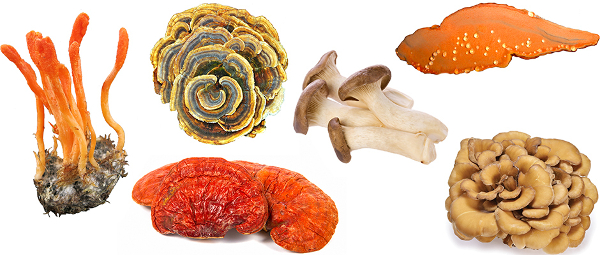
Preliminary research indicates the beta-glucan found in maitake mushrooms also has anti-tumor activity. The research suggests that maitake mushrooms can prevent metastasis of experimentally induced tumors as well as prevent tumor occurrence in normal cells. (14-16) The immune-enhancing and anti-tumor properties of cordyceps and reishi mushrooms, which are likely due to the beta-glucan and triterpene polysaccharides, also are studied for their potential to treat cancer. Studies in animals with cancer have shown that cordyceps mushrooms improve immune response, reduce tumor size and lengthen survival time. (17-20) A preliminary study in 36 patients with advanced-stage cancers found that taking cordyceps orally after chemotherapy treatment for cancer may improve quality of life and cellular immunity. (21) A 2003 study found that a specific reishi mushroom polysaccharide extract, Ganopoloy, stimulates immune function in advanced cancer patients. In the study, 34 patients with advanced-stage cancers took 1,800 mg of Ganopoly three times a day before meals for 12 weeks. Patients in the treatment group showed increases in interleukin-2 (IL-2), IL-6, Interferon-gamma, and natural killer cell activity. However, there was a concommitant decrease in IL-1 and tumor necrosis factor-alpha. (22) A 2005 review of studies indicates reishi mushrooms seem to inhibit proliferation of several human cancer cell lines in the laboratory, including, lung, liver, breast, prostate, cervix, and bladder, as well as lymphocytic leukemia. These extracts also seem to have direct cytotoxic activity against human breast, liver and cervical tumor cells, mouse sarcoma. (23) Further high-quality research is needed to establish safety and efficacy in humans.
Relieve viral infections, such as common colds, flu, bronchitis and sinusitis. A 2004 review of the beneficial effects of edible mushrooms found the immune-enhancing properties of mushrooms help to protect against cold, flu, and infections by inhibiting viral replication. However, research is lacking in this area. Studies are needed to determine the potential use of mushrooms and their extracts to treat viral infections.
Suggested Formula:

